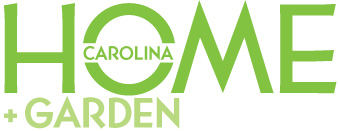Fun workshops turn beginners into botany lovers
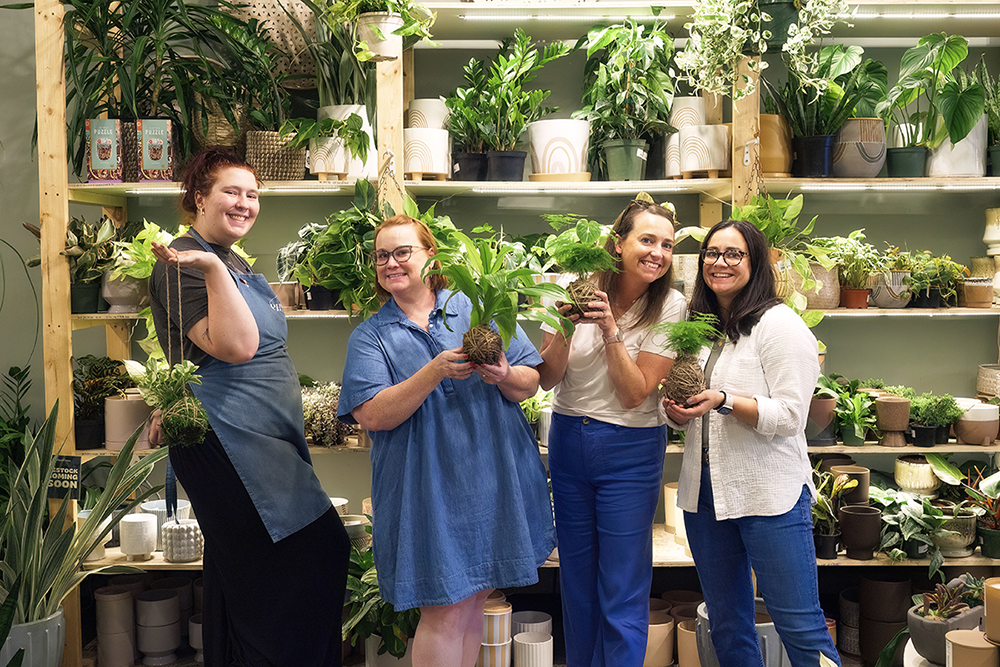
Instructor Bella Roberts, far left, leads participants Lynne Grey, Erin Grey, and Megan Werdel in a recent workshop in the oxygen-rich PlantHouse.
Photo by Ricardo Tejeda
Among the many homebound hobbies created by the isolation and confinement of the pandemic — sourdough-bread baking, woodworking, Peloton biking — nurturing a living, green environment through houseplants continues to thrive.
It’s about more than just potting a Pothos. Houseplants are a creative culture, with folks learning how to make moss walls, cultivate bonsai gardens, or, on a smaller scale, build bubble balls (i.e., round terrariums). PlantHouse, a retail plant shop that is also experience-based, with a full calendar of activities and workshops, takes the houseplant trend next level and adds a party to boot.
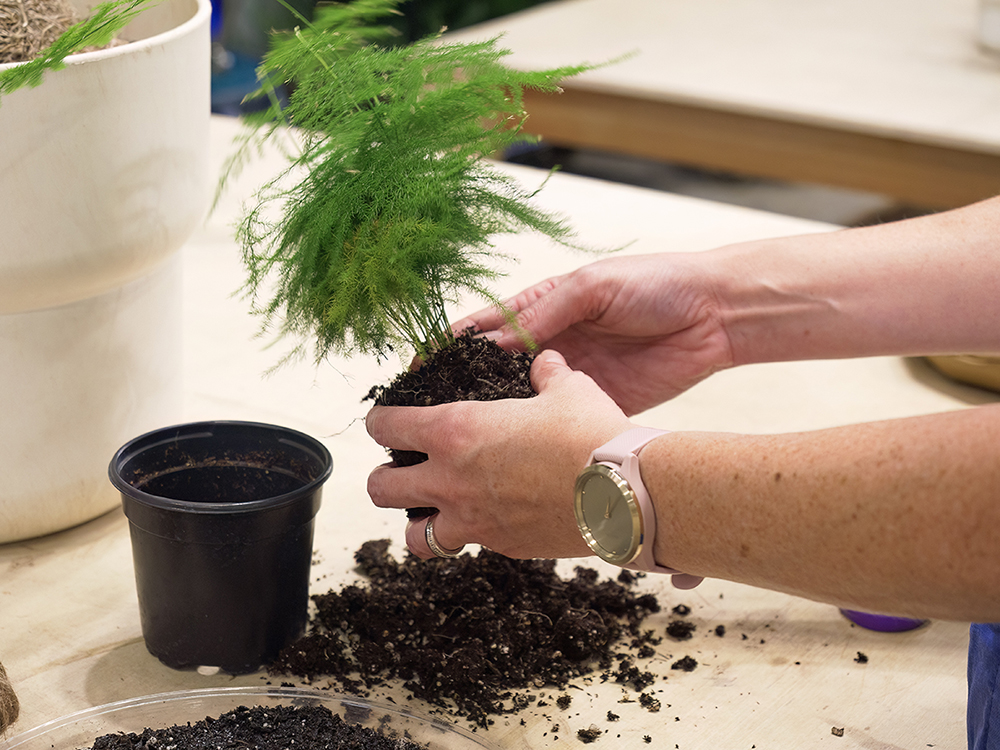
Photo by Ricardo Tejeda
“Succulents & Sangria,” “Boozy Bonsai,” and “Tipsy Terrarium Tuesdays” are luring people to the store in South Asheville. And they stay for the oxygen-rich atmosphere. “People who come in always comment on how fresh the air is,” says manager Erin Wyatt. “It’s definitely a task to get everything watered here — there are lots of plants — but we love the environment.”
Beginners are welcome — even “people who swear they are plant killers,” says Wyatt. “We will pot a plant for you, and make sure you know how to take care of it. If something goes wrong, we’re also happy to play plant doctor.”
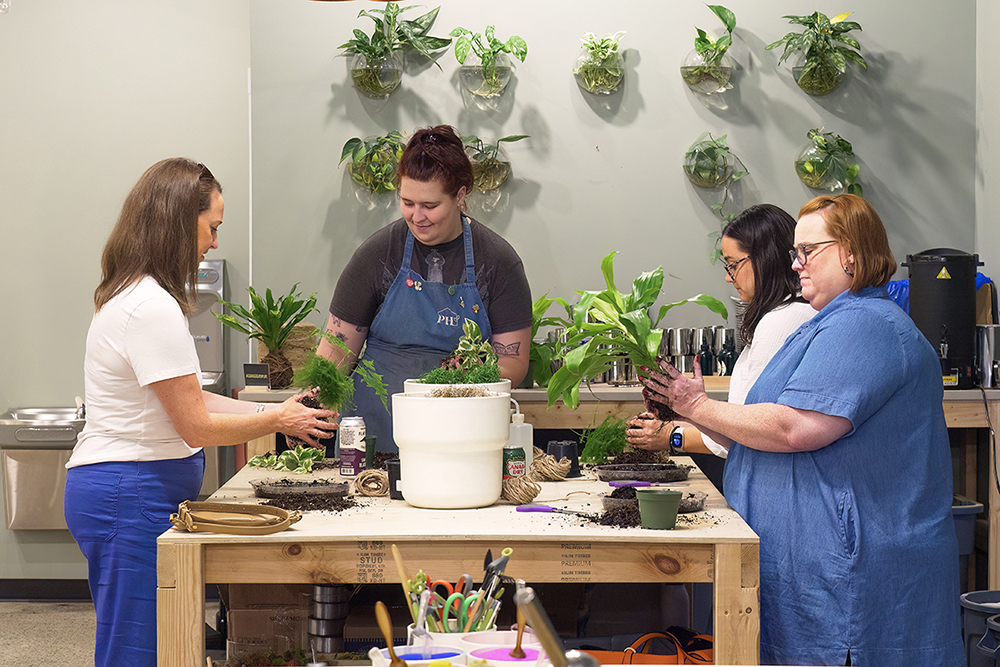
Photo by Ricardo Tejeda
But the staff specialty is leading the workshops. “Rather than just buying a plant and taking it home, the workshops are experiences you can do with friends, for a date, or for a team-building activity.”
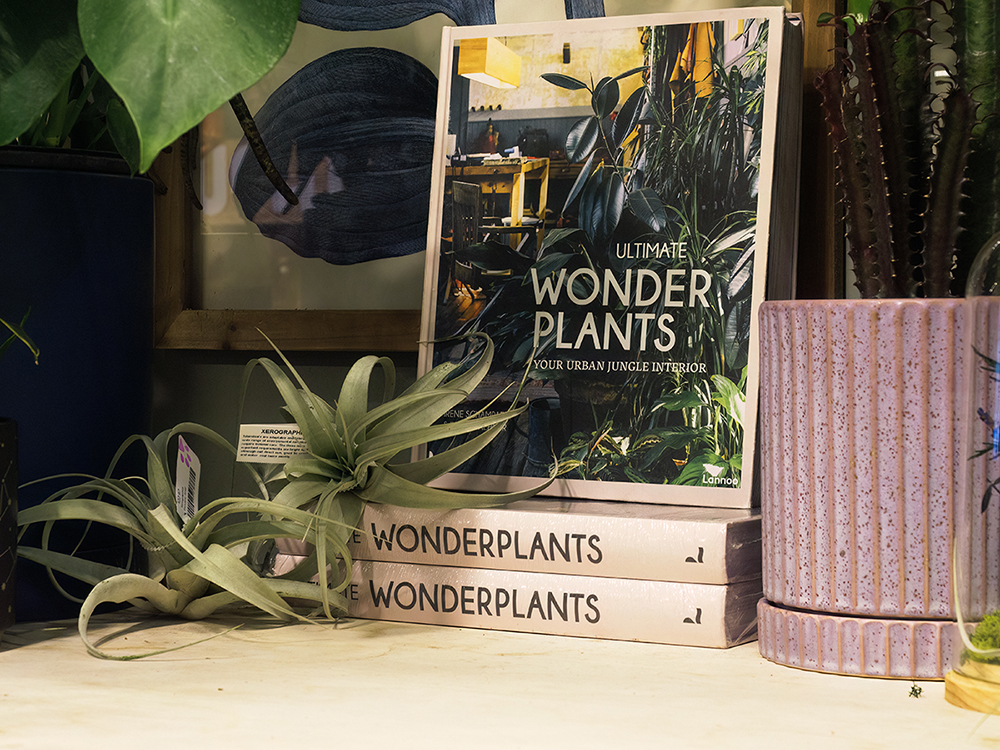
Most of the workshops are in the evening; when participants arrive, they can purchase a beer, mimosa, glass of wine, or non-alcoholic beverage from the bar before heading to the hands-on class in the rear of the shop.
Terrariums are built in glass cylinders, ceramic vessels, or “bubble balls” — at 6 or 8 inches in diameter, they’re big enough to get creative with but small enough to fit on a shelf, kitchen counter, or desktop. “Jellyfish” terrariums (no fish involved) use air plants, which require no soil. “People pick their plants and decorations, and we guide them through the build process with the sand and rocks,” Wyatt explains. “Everyone has their own vibe — you can go beachy and tropical or do a forest theme. Some people are very minimalist and go monochromatic, and the maximalists use lots of color and decor.”
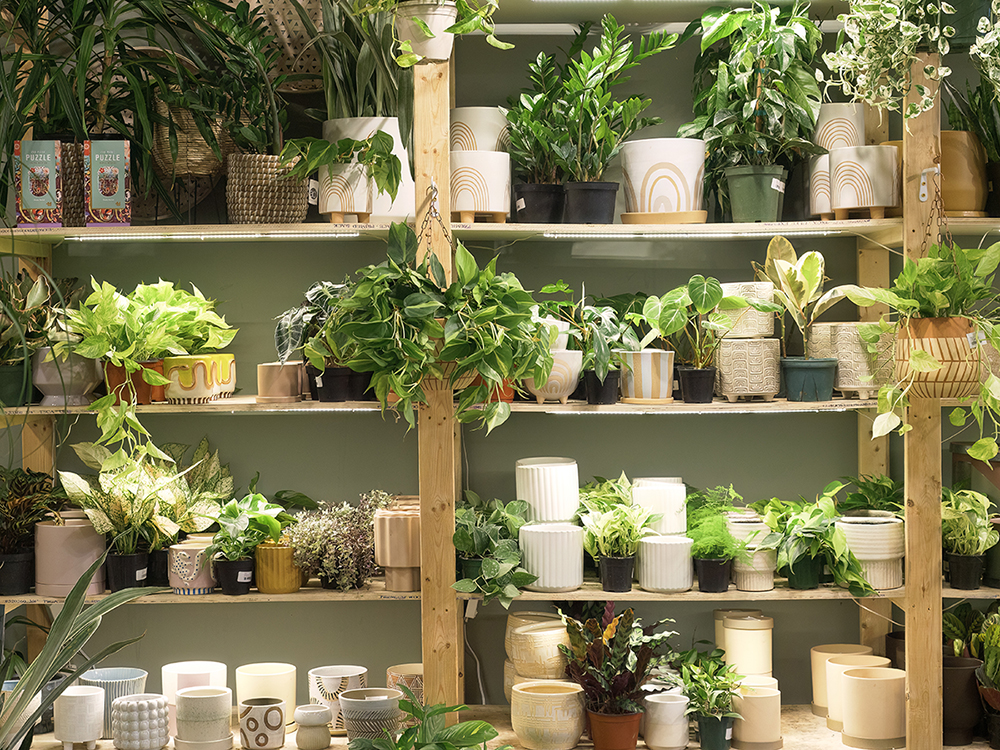
Succulent and cacti gardens — which do use some soil — are for less devoted caretakers. “You can pretty much place them in a sunny spot, put a little water on them every three weeks, and they’ll do their own thing.” And then there’s Kokedama — an ancient Japanese technique that places plants in a ball of soil (no pot) held together with moss and twine.
PlantHouse’s most popular workshop is “Boozy Bonsai.” This better-known Japanese art form is notoriously challenging, but the course is aimed for newcomers to the genre. “We teach people some history of bonsai, how to plant the little tree and keep them in their small container looking miniature, the way a bonsai should,” says Wyatt.
She reveals that the bonsai workshops enroll more men than any of the store’s other offerings. “There’s something about the pruning that guys really get into. Bonsai is a bit of a slippery slope — people can get a little obsessed.”
PlantHouse Asheville, 2 Hendersonville Road Suite A3, 828-707-1978, asheville@planthouse.us, see planthouse.us/pages/asheville-nc-location for fall workshops.
